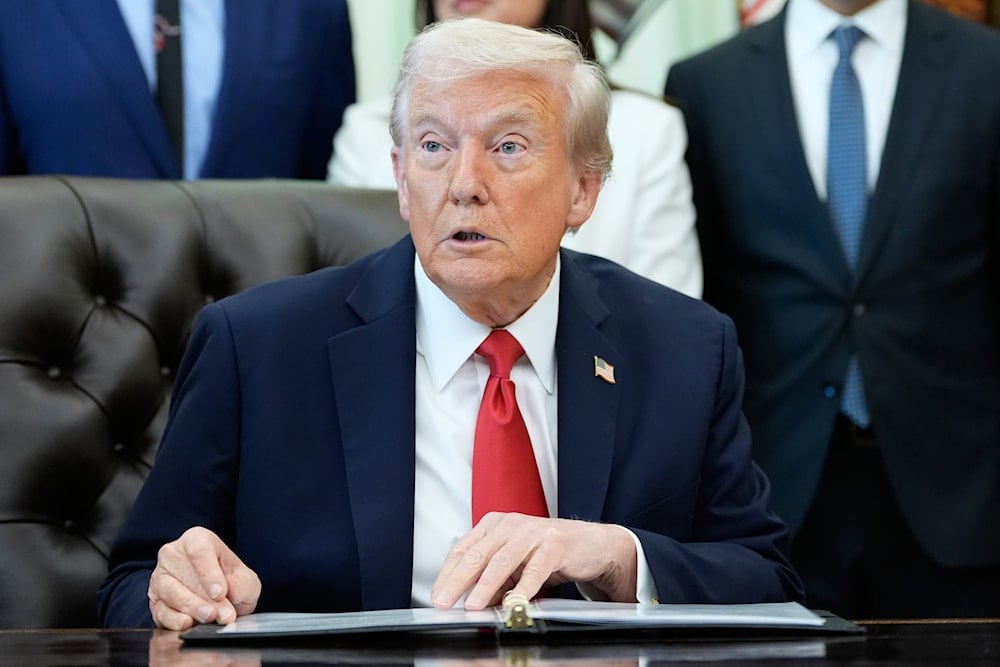Trump admits 100% tariff on China 'unsustainable', plans to meet Xi
Trump blames Beijing’s rare earth export controls for escalating the US-China trade standoff.
-

US President Donald Trump speaks in the Oval Office of the White House, Thursday, Oct. 16, 2025, in Washington (AP)
US President Donald Trump stated that his proposed 100% tariff on Chinese goods would ultimately be unsustainable, yet he directly blamed Beijing for the new impasse in trade talks, an impasse that began when Chinese authorities moved to tighten their control over the export of rare earth materials.
When questioned on the sustainability of such a high tariff and its potential economic impact, Trump replied, "It's not sustainable, but that's what the number is," adding, "They forced me to do that," in an interview for Fox Business Network on Friday.
A week ago, Trump unveiled additional 100% levies on Chinese exports destined for the US and announced new export controls on "any and all critical software" to be implemented by November 1, which is nine days before the existing tariff relief was set to expire.
Trump also confirmed he would meet with Chinese President Xi Jinping in two weeks in South Korea, a meeting the US president had cast doubt on last week, while expressing admiration for the Chinese leader.
“I think we’re going to be fine with China, but we have to have a fair deal. It’s got to be fair,” Trump said during an interview on FBN’s Mornings with Maria, which was recorded on Thursday
Trump imposes waves 100% tariff against China over ship fees
Trump's 100% tariff came as the trade war between China and the United States intensified, when the world's largest economies began imposing fees on each other's ships.
Beijing said its fees are a countermeasure to US policies and will apply to American-owned, operated, built, or registered vessels, but not to ships built in China, mirroring new US port charges that Washington says are meant to support its domestic shipping industry, which has struggled to compete with Asia's subsidized shipyards.
Chinese state media said the US fees break a bilateral maritime agreement from over twenty years ago, and in response, Beijing will charge 400 yuan per net tonne on ships linked to the US, a rate that will increase each year to 1,120 yuan per tonne by April 2028.
The Chinese Ministry of Transportation said the fee will apply to vessels owned by US companies, organizations, or individuals, as well as ships where US entities hold 25% or more ownership or those sailing under the US flag, starting on October 14.
Previously, on October 9, the Chinese Ministry of Commerce announced that export restrictions would take effect starting November 8 on a range of goods critical to high-tech and green industries, including medium and heavy rare earth elements, lithium batteries, artificial graphite anode materials, extraction and processing equipment for rare earth metals, and ultra-high-strength materials.
In a late-night Truth Social post on October 11, Trump accused Beijing of taking an "extraordinarily aggressive position" by imposing broad export controls on rare earth materials and other critical goods, and he said the US response would be "swift and decisive," adding that the tariffs could take effect "sooner if necessary."

 3 Min Read
3 Min Read








